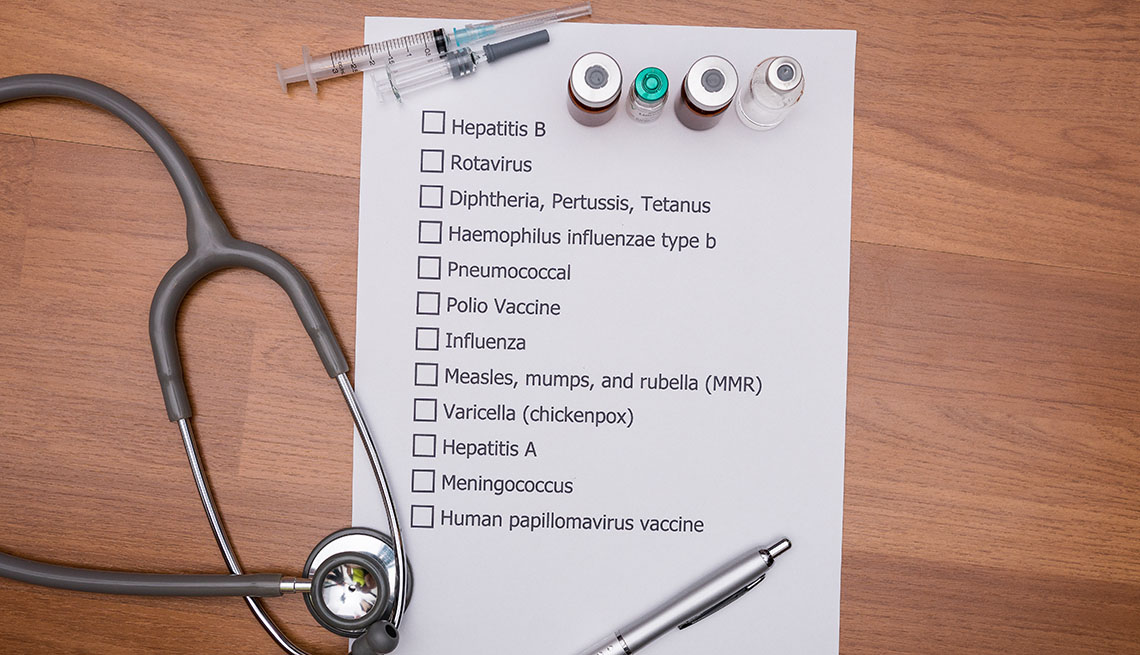-
AARP Immunization knowledge test
Posted on August 16th, 2019 No comments
AARP Picture and Test Score: 100%
You answered 8 out of 8 questions correctly.
1. How often do adults 65 and older need the Tdap (tetanus, diphtheria and pertussis) or Td (tetanus, diphtheria) booster vaccine?
Your Answer: Once for Tdap, then a Td booster every 10 years
Correct Answer: Once for Tdap, then a Td booster every 10 yearsThe Centers for Disease Control and Prevention (CDC) recommends that every adult receive a Tdap vaccination, then a Td booster every 10 years. Also, women should get the Tdap vaccine each time they are pregnant.
2. What is pertussis?
Your Answer: Whooping cough
Correct Answer: Whooping coughThe highly contagious respiratory disease, for which there is a vaccination, can affect people of all ages but can be fatal in babies under a year old, according to the CDC.
3. The CDC’s Advisory Committee on Immunization Practices now recommends this vaccine for shingles.
Your Answer: Shingrix
Correct Answer: ShingrixThe two-dose vaccine protects against the painful rash of shingles, which is caused by the varicella-zoster virus.
4. Who is at increased risk for meningitis?
Your Answer: Someone with a damaged spleen
Correct Answer: Someone with a damaged spleenVaccinations are available for meningitis, which is a bacterial infection that causes swelling around the brain and spinal cord. The spleen plays an important role in killing bacteria in the bloodstream, and people with damaged spleens are more vulnerable to many infections, including meningitis.
5. How often should most adults over 65 get the pneumococcal vaccine (pneumonia)?
Your Answer: There are two vaccines, and each should be given one time, a year apart
Correct Answer: There are two vaccines, and each should be given one time, a year apartThe CDC currently recommends a vaccine called PVC13 first, then a dose of the PPSV23 vaccine a year later. The vaccines protect against different strains of pneumococcal bacteria.
6. Who should be sure to talk to a doctor about their heightened risk of a reaction before getting the influenza vaccine?
Your Answer: Those who are allergic to eggs
Correct Answer: Those who are allergic to eggsThe flu vaccine has egg protein in it, but the CDC now considers the risk of a severe reaction in people allergic to eggs to be low. It still, however, recommends that people with a history of severe egg allergies be given the vaccine under the supervision of a medical professional who can recognize and manage severe allergic conditions.
7. The risk of this side effect from a flu vaccine varies from season to season, but the CDC estimates it is very low in the population as a whole.
Your Answer: Guillian-Barré syndrome
Correct Answer: Guillian-Barré syndromeThe immune systems in patients with Guillian-Barré syndrome attack and damage their nerve cells. Most patients recover fully within a few weeks, although death has been reported in rare cases.
8. Why are people born before 1957 usually immune to measles and mumps?
Your Answer: Nobody was vaccinated before 1957, so those born before are likely to have had the disease and already have immunity.
Correct Answer: Nobody was vaccinated before 1957, so those born before are likely to have had the disease and already have immunity.Note, however, that if you were born before 1957 and don’t know your immunization status, you should ask your doctor if you need to get the vaccine.



